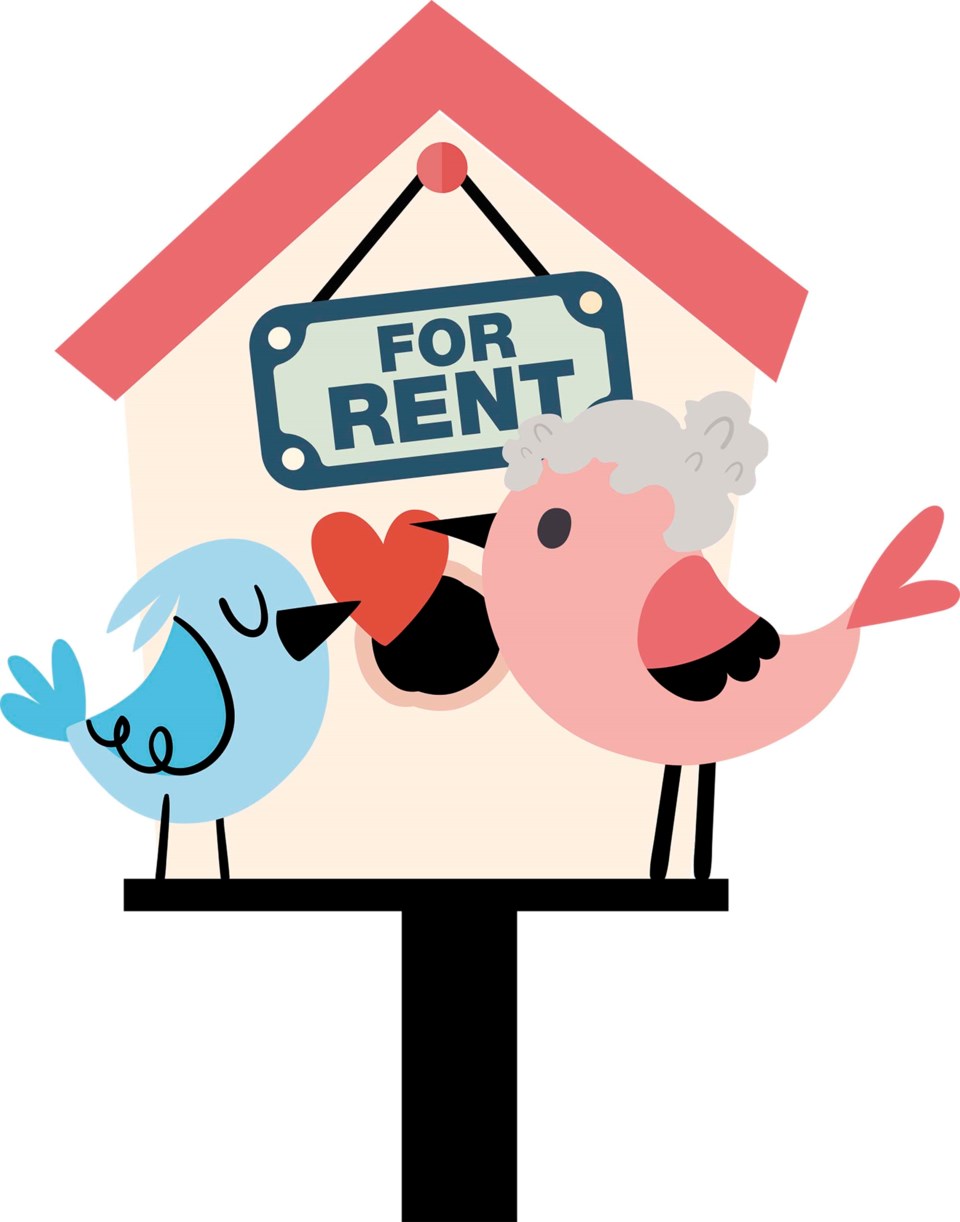Counting the cost
The Gazette is looking at how residents are dealing with the rising costs of living in St. Albert. If you have a question on why life is so expensive, email [email protected] so it can be answered in a future story.
When Cailan Libby’s father died several years ago, he said it left his mother alone in her large home in B.C. She not only had to grapple with grief, but also the financial pressures of maintaining a house with more rooms than she could use.
Libby said he and his sister convinced their mother to try homesharing — an arrangement where two unrelated people share a home and their lives for mutual benefit, with an emphasis on mutual support rather than financial gain. They had her meet with a local mechanic in search of affordable housing and she rented a room to him at a reduced rate.
“It totally transformed her life,” said Libby, giving her a sense of purpose and companionship, and she went on to host 11 more tenants in the next six years.
“We noticed a huge improvement in her health and well-being afterwards.”
Homesharing is growing in popularity around the world as a way to help youths find affordable housing and help seniors age in place. Could it work here in St. Albert?
Homesharing
Homesharing is an international movement that typically pairs elderly and/or disabled hosts in need of at-home support with younger tenants in need of affordable housing, reports HomeShare International. In exchange for low/no-cost shelter, the tenant helps the host with household chores, security, companionship, and other services. Such partnerships can also help break down intergenerational barriers and reduce demand for in-home health care services.
Libby said he got into homesharing back in 2017 in Kelowna, B.C. after noticing his community had lots of students struggling to afford housing and many seniors with empty bedrooms. He started the non-profit Happipad to match students with potential hosts. Happipad now has about 400 active hosts in Kelowna and has helped set up thousands of homeshare agreements across Canada.
“Across Canada, about one third of our housing supply — over 12 million bedrooms — will sit empty tonight,” Libby said, citing national census data.
“This solution helps access that form of hidden housing.”
Homeshare programs typically screen and match candidates and support their partnership, HomeShare International reports. Happipad helps its clients do background checks, manage insurance issues, and mediate disputes, for example, and runs an online platform where hosts can check out potential tenants in advance, Libby said.
“You can think of this like online dating in a way,” he said.
Homesharing can yield substantial social benefits. A 2021 study by University of Washington population health professor Amy Hagopian found American homeshare programs (of which there are dozens) saved people hundreds of thousands of dollars a year on hired help and rent.
Libby said his clients tell him homesharing has made them feel safer at home and helped some of them forge lifelong friendships. One of his earliest homesharers hosted a tenant for six years, for example, and only parted ways with them when the tenant moved out after getting married.
Getting it started
St. Albert has yet to get homesharing off the ground.
The St. Albert Housing Coalition launched the St. Albert homeshare program in 2020 but has yet to find any willing hosts for it, said St. Albert Food Bank executive director Suzan Krecsy.
“Folks are still a little tentative about having strangers in their home,” said Krecsy, adding the coalition might need to hold more information sessions about homesharing.
Linda Ensley, executive director of the St. Albert Seniors Association, said she tried to start a homeshare program around 2020 at the Edmonton Seniors Centre. The centre struggled to find hosts and tenants with compatible views on issues such as pets and drug use, and realized it would need have trained mediators on staff to resolve potential disputes.
“We really thought it was a good solution,” Ensley said, as it had worked in Europe, but it was too much work for the centre to handle.
“The fear level was so high, we struggled.”
St. Albert’s Cherilyn Michaels has arranged hundreds of homeshare-like matchups through the Edmonton Hosts Ukrainians Facebook group. In an email, she credited the group’s success to community building.
“For two years I worked four-to-10 hours a day making connections, cultivating relationships, knowing what was going on, matchmaking, and using our social media platform to make the need known and build a sense of community around helping,” she said in an email.
Michaels said social media let her tenants and hosts hold fast, personal, and direct conversations for weeks, allowing them to build relationships long before they arrived in Edmonton.
“By the time the hosting situation started, these people were not strangers to each other at all.”
Homeshare programs take a lot of work and promotion to run and typically need at least three years to get rolling, Libby said. Economies of scale were also vital for sustainability. He suggested St. Albert partner with a bigger homeshare group such as Happipad or Canada HomeShare for support.
“You have to believe in this and really want to see change in your community.”
Questions on homesharing in St. Albert should go to the St. Albert Food Bank’s homeshare co-ordinator at 780-459-0599 ext. 6.




